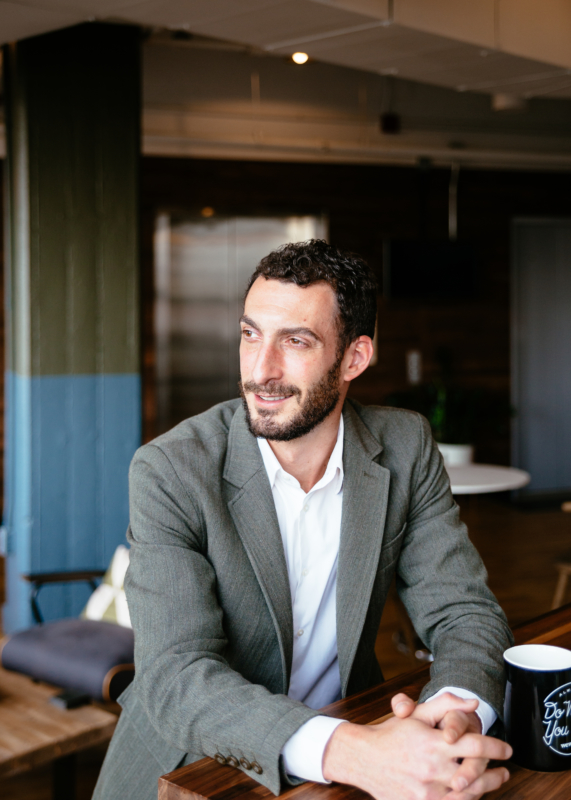Leaving behind a job at a high-profile law firm is stressful enough, but Peter Goldberg knew that the non-profit where he was headed had serious budget problems.
“We didn’t even have the money to pay for my salary,” Goldberg remembers.
Since then, he’s been able to get the Brooklyn Community Bail Fund, a legal fund that helps people accused of misdemeanors who can’t afford bail, on its feet. It’s now helped more than 150 people who might otherwise have had to await trial in jail at Rikers Island.
He says that conditions in the jail, ranked as one of the worst in the country, compel people to agree to anything rather than spend the night there.
“Most of them will end up pleading guilty, just to go home, even when they’re innocent or have been unconstitutionally stopped and frisked,” Goldberg says. “There’s really nothing as strong as the desire to get off Rikers, so we pay bail.”
Goldberg says about half of the fund’s clients eventually have their cases dismissed.
“And then they also have significantly better life outcomes because they’re able to stay with their families, they’re able to stay at a job, or stay in school,” Goldberg says.
Goldberg was working as a corporate lawyer at the firm Cleary Gottlieb when Brooklyn Defender Services approached him about pro bono work in 2013. It was a good fit, since he had previously been working with underprivileged communities around the world, from the homeless in Spain to orphans in Chile.
He eventually became a board member and then was asked to be the fund’s first executive director.
It’s still a stressful job. You can tell from his rumpled white shirt, his near-constant hand movements, and the way his eyes gaze out the windows in his WeWork Dumbo Heights office.
“I don’t know if I deal with the stress well enough,” says Goldberg, whose phone rings shortly after. He quickly answers and hangs up. “I think one of the major destressers of all this is that I love what I do, and I find incredible value in it.”
Yet, his work drives him forward. Earlier in the day, Goldberg had interviewed five people at criminal court.
“For those who we paid bail for, I am sure they’re gonna call me as soon as they get home, so they’re clients with whom I’ve really developed relationships of a sort,” Goldberg says.
But ideally, Goldberg would like to see the unfair bail system cease to exist.
“If cash bail were to be abolished tomorrow, I would like to go on a honeymoon with my wife,” chuckles Goldberg, who got married recently. “And I would love to transition what we’re doing here to accomplish the other necessary work.”
Photo credit: Lauren Kallen





